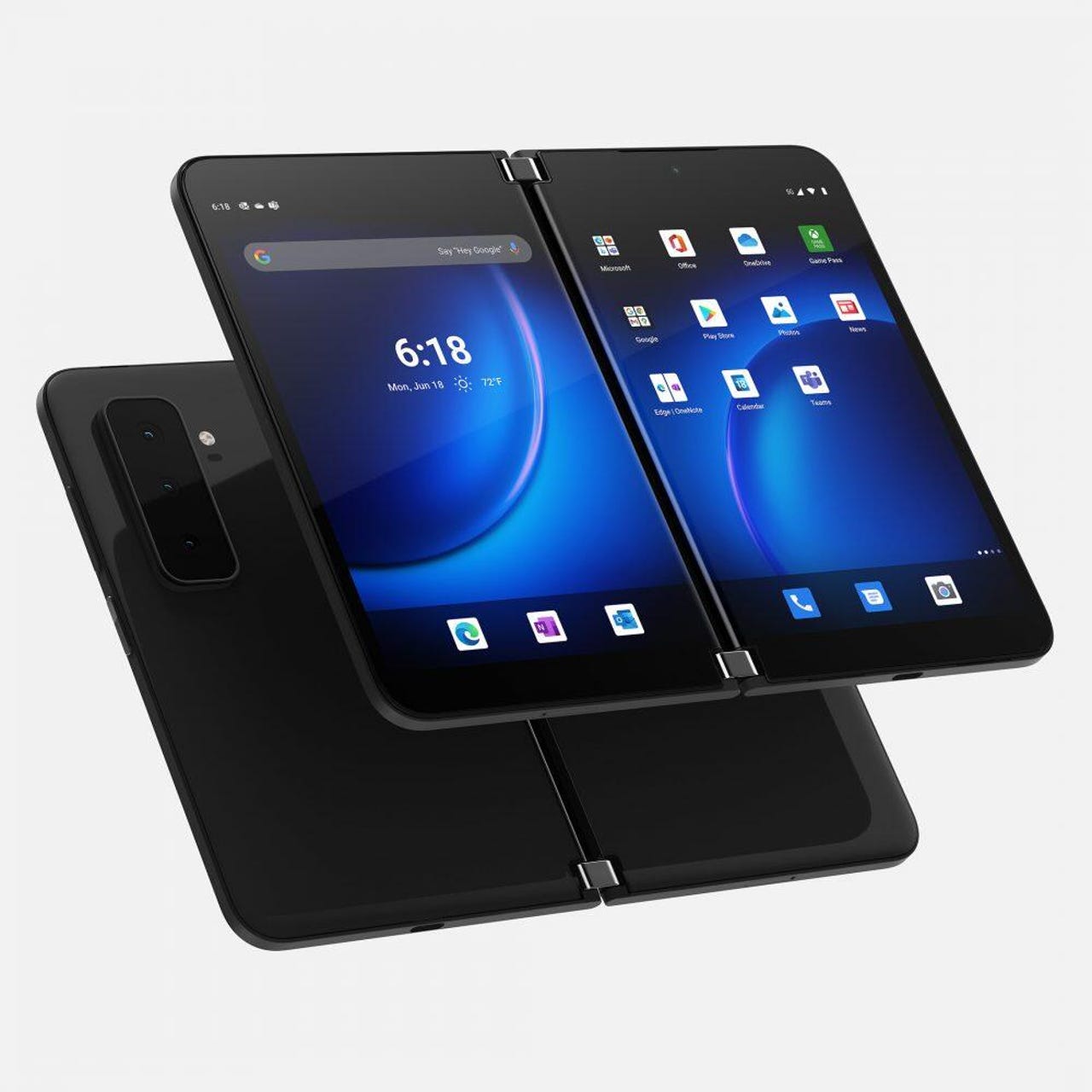 Image: Microsoft
Image: Microsoft Ever since I starting writing about mobile technology 21 years ago, I've been enthralled by those who push the boundaries of smartphone design and technology. While Apple's new iPhones have longer battery life and fantastic cameras, the same old design doesn't excite me. I'm thrilled with my new Samsung Galaxy Z Fold 3, but the new Surface Duo 2 is interesting enough that I already placed a pre-order for one.
Featured
- We're not ready for the impact of generative AI on elections
- This is the$300 Android phone to beat in 2023 - and it even has a stylus
- 5 things I learned while building my smart home
- The best laptops under$1,000: MacBook, Surface Pro, HP models compared
I purchased, and then later returned, the original Surface Duo primarily due to the fact that Microsoft used year-old internal specifications, had a single poor camera, did not include NFC to support Google Pay, and left too much on the table. We then saw prices plummet with the Duo available for less than$500 over the past couple of months.
Also: Microsoft Surface Duo review: Buy it for dual screen use, not for its old specs
Despite the shortcomings of the original Microsoft Surface Duo, it offered a form factor for optimal productivity with two big screens designed to get work done. Microsoft offered unique software experiences, especially in relation to Office 365 applications. It wasn't designed for someone looking for a straightforward smartphone, but for people getting work done on the go where a large tablet was too big and a standard smartphone was too limited.
There are several reasons to consider an upgrade from the Surface Duo to the Surface Duo 2 or to pick up a Surface Duo 2 for the first time. These include:
- Triple rear camera system: There was a single internal camera on the original Surface Duo that was designed for Teams and video calling. Other than these uses, the camera was terrible. This year we still have an internal video conference camera, but also find three cameras on the back that look to compete with other smartphones.
- 5G and NFC: Sub-6 and mmWave 5G radios are found in the Duo 2, which is a major upgrade from LTE radios. NFC is also now present to support Google Pay. Bluetooth and WiFi capability was also upgraded.
- Qualcomm Snapdragon 888 processor: The Surface Duo used a 2019 era processor so it's nice to see the latest Snapdragon 888 powering the Duo 2.
- 90Hz refresh rate: Once you use a display with a refresh rate higher than 60Hz, it's tough to go back. While 120Hz is the standard for today's flagships, 90Hz on both big displays is a welcome addition.
- Bigger displays: While there are still significant bezels on the Duo 2, we do see a bump up from two 5.6-inch displays to two 5.8-inch displays with the same PPI. We also see an upgrade to the Victus glass material.
- Glance bar: Although there is no external display on the Surface Duo 2, Microsoft provides some innovation with the part of the display showing between the hinges. Glanceable notifications are provided in this area and we look forward to evaluating their usefulness.
- Improved pen support: Samsung couldn't figure out a way to easily tote the S Pen on the new Z Fold 3, but Microsoft offers a solution for the Surface Slim Pen 2 where it attaches magnetically to the Surface Duo 2. It's not a secure silo, but it's better than nothing.
Unfortunately, all of these improvements come with a starting price$100 more than last year. Microsoft also now offers three internal storage capacity options of 128GB/256GB/512GB with the same 8GB of RAM available in all three models.
Also: Samsung Galaxy Z Fold 3 review: Room for improvement
Microsoft Surface Duo 2 specifications
- Processor: Qualcomm Snapdragon 888
- Displays: Two 5.8-inch, 1892x1344 pixels resolution (401ppi) AMOLED, Corning Gorilla Glass Victus displays
- Operating system: Android 11
- RAM: 8GB LPDDR5
- Storage: 128/256/512GB internal storage, UFS 3.0
- Cameras: 12MP wide, 12MP 2x telephoto, and 16MP ultra-wide, 110-degree rear camera set. 12MP f/2.0 interior front-facing camera
- Connectivity: WiFi-5 802.11 a/b/g/n/ac/ax (2.4/5GHz), Bluetooth 5.1, , NFC, GPS/Galileo/GLONASS/Beidou/QZSS
- Sensors: Dual accelerometer, dual gyroscope, dual magnetometer, hall sensor, fingerprint sensor, proximity sensor, dual ambient light sensor
- Battery: 4449 mAh non-removable
- Dimensions (Open): 145.2 x 184.5 x 5.5 mm
- Dimensions (Closed): 145.2 x 92.1 x 11 mm
- Weight: 284g
Quickly looking at the Surface Duo 2 compared to the Galaxy Z Fold 3, we don't see any level of dust or water resistance on the Duo 2, no wireless or reverse wireless charging, the Duo 2 displays are limited to 90Hz while the Z Fold 3 has 120Hz refresh rates, and the trade-in offers from Microsoft are clearly not as generous as what Samsung offers. Software enhancements for dual and split screen operations are offered in both devices.
While I am thoroughly enjoying and exploring all that my Galaxy Z Fold 3 has to offer, I look forward to trying out the new Surface Duo 2. I cannot justify keeping both of these expensive devices so stay tuned here for more thoughts on both of these innovative smartphones.
































 Image: Microsoft
Image: Microsoft  Etiquetas calientes:
tecnología
Los teléfonos inteligentes
Etiquetas calientes:
tecnología
Los teléfonos inteligentes